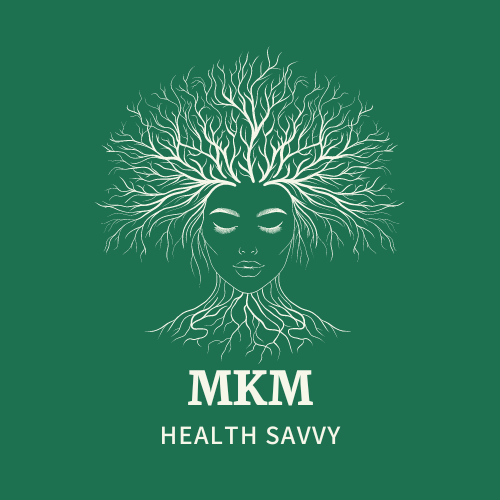Oh baby, I don’t feel so good…
I’ll start this blog post with the full admission that it’s been 10 weeks since I’ve written anything on this blog or tried to do any work related to my online businesses. I’m 17 weeks pregnant and though I was going strong with working immediately after finding out I was pregnant (weeks 5-6), around week 7 is when fatigue, brain fog, zero motivation, food aversions, and nausea hit HARD. Even though I have been feeling better the past few weeks (relative to the first trimester), I have had a mental block to getting back to work. After a pep talk from my husband and reflecting on previous conversations with my counselor though, here I am! I’m ready to write about my experience and the research so that others going through a similar experience know they’re not alone.
Migraines in my pregnancy: Since becoming pregnant, I have had two migraines (during weeks 9 and 14) and I was getting headaches daily around weeks 12-15 and intermittently besides that. Overall, the frequency of headaches and migraines is still less than what I was experiencing previously. BUT BIG CAVEAT! My migraines were much worse when I was working at a very stressful job that I left at the end of 2023. I (mostly) attribute the overall reduction in migraines in the last 7ish months to less stress and more sleep. The migraine I had at the start of week 14 is one of the worst I’ve experienced in YEARS. I was vomiting everything I ate and could barely move from bed or keep my eyes open. I’m not sure what triggered it, but I suspect it was something I ate. I don’t take migraine medications, and I never have other than over-the-counter pain relievers, choosing to do my best to manage migraines with lifestyle changes because the prescription migraine medication side effects freak me out, so that hasn’t been a concern for me in pregnancy. But, if you’re interested, drop a comment that you want a post on what migraine and headache medications are considered safe in pregnancy and I’ll do the research!
ADHD in my pregnancy: Pregnancy hormones made my ADHD symptoms significantly worse, especially in the first trimester. Around week 7, I essentially stopped being able to do anything beyond trying to eat enough each day. My brain felt like I was always hung over – ZERO executive functioning, horrible memory, and overall cognitive impairment. I was sleeping up to 16 hours a day and though I didn’t experience a lot of vomiting, I had strong food aversions, constant nausea, and acid reflux (especially at night). Since I wasn’t eating much (and I was exhausted), I also wasn’t moving much and that definitely didn’t do my brain any favors.
Honestly, women who go to a full time job in their first trimester deserve a medal of valor!
My fatigue, nausea, and brain fog started to improve significantly around week 13/14, though I’m still not back to my pre-pregnancy energy and mental abilities. Even so, I felt a mental block to wanting to work on my online businesses. My counselor gave me the advice to only work on what got my dopamine flowing and my husband gave me the advice to only work 2-4 hours max each day so that I don’t over-exert myself and stop again (consistency > high productivity). With that said, I’m exclusively focusing on this blog and related social media posts and I’m not working on any of my other businesses. Helping others understand how their hormones impact their migraines and ADHD symptoms and what they can do about it is my passion! So, with that, let’s dive into some specifics and research.
What does the research say about pregnancy and migraines?
The good news is that while migraine is 3x more common in females than males and the highest prevalence rates for migraines are during child bearing years, migraines are not thought to affect fertility or the course of pregnancy (1,2). Usually (but not always) pregnancy reduces the frequency and severity of migraine attacks and this is especially true for individuals with migraine without aura. Migraines may increase in the first trimester, due to the influx of hormones, but are usually less frequent in the second and third trimesters (1). Postpartum headache is common and most often occurs 3-6 days after birth, though it’s usually less severe than patients’ typical migraine (1). Keep in mind that lack of sleep can be a migraine trigger, so if possible, use your support system to ensure you’re still getting some uninterrupted sleep. (Personally, I’ve already discussed a sleep schedule trade-off with my husband such that, a few weeks after birth, he gets a sleep shift between 9pm-3am and I get a sleep shift between 3am-9am. Though it’s our first child and this goal may be a bit idealistic….)
Interestingly, pregnancy can alter migraine aura and may trigger aura without headache, leading some women to search for an intracranial disease. While this new symptom can be alarming, it seldom is a new intracranial disease (1). Nevertheless, intracranial diseases like a stroke can occur in pregnant patients with migraines. Specifically, there is some evidence that there is an association between migraine and ischemic stroke, so if you develop symptoms like one sided weakness, difficulty speaking, sudden loss of one or more senses, blurred or doubled vision, or loss of coordination, go to the ER immediately (3).
Other relevant findings in the research indicate that there is an increased risk of gestational hypertension, preeclampsia, and vascular disease (i.e., acute myocardial infarction, heart disease, and thromboembolic events) in migraineurs compared to non-migraineurs (4). With this in mind, and especially if you have other risk factors like history of smoking or being overweight, it is critical that you speak with your healthcare provider about high-risk obstetric monitoring to prevent serious complications (4). Additional care will include more frequent blood pressure monitoring and education on symptoms to watch for related to stroke, cardiovascular disease, and preeclampsia.
The general advice for managing migraines doesn’t change in pregnancy. Focus on getting enough sleep (e.g. 8-10 hours a night), staying hydrated, eating a well-balanced diet (while being sure to avoid food triggers), and reducing stress through exercises like yoga, walking, light weight training, or meditation. This advice can be especially hard to follow in pregnancy but as always, just do your best. Your best is unique to you so don’t compare yourself to others.
When it comes to eating in the first trimester, focus on eating small, frequent meals, as this may reduce the chance of headache/migraine due to blood sugar dysregulation. Protein-rich meals and snacks will help with nausea and help regulate blood sugar. I had a strong aversion to meat and eggs in my first trimester so getting enough protein has been difficult. I made the switch from oat milk to soy milk to increase my protein and calcium intake (I don’t eat dairy) and have relied heavily on daily fruit-protein shakes with almond powder protein and collagen and these Owyn protein shakes to get enough protein in my diet. Also, your water/hydration needs increase in pregnancy so if water is an aversion for you (which some pregnant people report), use water flavoring or electrolyte packets you enjoy and drink those fluids!
What does the research say about pregnancy and ADHD?
While a lot of the research on ADHD and pregnancy focuses on the impact of stimulant medication on pregnancy, I was more interested in researching the impact of pregnancy on executive functioning, memory, and neurocognition sans medication – but I didn’t have much luck.
“Pregnancy brain” is a well- known side effect of pregnancy and is associated with memory impairment and impaired neurocognitive functioning, like processing speed (6). While there is very limited research evaluating ADHD symptom progression in pregnancy, the hormonal changes in pregnancy do seem to impact ADHD symptoms (5). Although research indicates that ADHD symptoms in pregnancy may decrease due to increased estrogen levels (6), I have not found that to be the case for me yet, and that may because progesterone also increases in the first trimester which could counteract any positive impact of estrogen on serotonin and dopamine. Further, after giving birth, estrogen and dopamine levels drop dramatically, which may result in depressive symptoms and worsening ADHD symptoms (6). This may be especially true for women who were taking ADHD medication before they were pregnant and stopped once they found out they were pregnant. The good news is that recent research concluded that a strong social support system for the mother following birth significantly reduced the likelihood of postpartum depression (e.g., having others make/bring food, clean the house, and support mom in taking breaks from childcare for self-care) (8). Social support is not a luxury every mother has, but talk with family and friends early and often about your concerns and how they can help you. If you don’t have people in your life that can help, look into social services that can offer reprieve.
I have previously used stimulant medication and found it very useful in times of intense workload (i.e., during college and graduate studies when I was working 80+ hours a week and not able to implement healthy lifestyle habits). However, I haven’t taken stimulant medication in several years and instead I have worked to change my habits for better symptom management. These lifestyles changes included going from binge drinking/regular drinking to very limited drinking (i.e., 1 drink 1-2x/month), regular exercise like weight training, walking, and yoga, good sleep hygiene, a diet focused on plants and protein, and active engagement in therapy with a counselor who specializes in patients with ADHD. Nevertheless, despite my best efforts at a healthy lifestyle (which was extremely difficult in the first trimester), I have definitely noticed my ADHD symptoms have gotten worse – specifically, lack of focus and motivation, increased impulsivity and irritability, poor time management, fatigue, and forgetfulness.
When it comes to ADHD medication, the evidence is fairly strong that stimulant medication may increase genetic abnormalities and negatively affect fetal development (6). That said, discuss what options you have with your healthcare provider. If you need to stop taking medication and that is impacting your work performance and life, be as honest as you can with those around you and hopefully they’ll be empathetic and work on providing accommodations like quieter work environments, more frequent breaks, and reducing what’s ‘on your plate’ overall. Pregnancy is temporary and showing up at 50% is better than not showing up at all. Research also indicates that taking stimulant medication while breastfeeding could affect your baby’s development and adversely impact their appetite and sleep (6). While there may be a saying that ‘breast is best,’ there is nothing wrong with using formula if you need to be on stimulant medication to function and care for yourself and your baby. Your mental health is just as important as your baby’s health.
A systematic review on ADHD, pregnancy, and birth outcomes found that maternal ADHD is associated with an increased risk of pre-eclampsia, infection, and C-sections, as well as an increased risk of pre-term birth and needing the infant to be treated in the neonatal intensive care unit (7). Notably, women with ADHD are also more likely to have other mental health disorders including depression, bipolar disorder, and anxiety disorders, which also are associated with an increased risk of pregnancy and birth complications and overall, these disorders are associated with a “generally less healthy lifestyle” (7). Obesity is more common in women with ADHD as are risky behaviors such as smoking, alcohol use, and illegal drug use. While I haven’t done the research myself, this review did not control for lifestyle factors, and I suspect that it’s more accurate to say that unhealthy lifestyle factors like being overweight, risky consumption behaviors, and poorly managed symptoms of mental health disorders are associated with an increased risk of pre-eclampsia, infection, and C-sections (rather than ADHD itself being the cause), so take these research findings with a grain of salt….
I know this all sounds a bit dire. I certainly felt that upon reviewing the research and I was really disappointed that there wasn’t more research on the mother’s ADHD symptoms and pregnancy – much of the research looked at how maternal ADHD either impacted the fetus/baby and birth outcomes or how a mother’s health impacted the chance of the child developing ADHD. My conclusion from all this is that I should continue to implement, as best I can, the healthy habits I already employed in managing my ADHD and to not think poorly of myself for the increased symptoms I’m experiencing due to pregnancy hormones. I know not every woman has the luxury of being able to leave their stressful job like I did nor do they necessarily have supportive partners or social systems, which are two things that have helped me cope with all this tremendously. The best piece of advice I can offer is to tap into whatever community you do have, explain how your symptoms are impacting your ability to work and live your life, and ask for help and accommodations. Get sleep, eat well-balanced meals (protein-rich!), and move your body as much as you can.
Good luck to all the pregnant people dealing with migraines and ADHD symptoms and let me know what else you want to know!
References:
- Goadsby PJ, Goldberg J, Silberstein SD. Migraine in pregnancy. BMJ. 2008 Jun 28;336(7659):1502-4. doi: 10.1136/bmj.39559.675891.AD. PMID: 18583683; PMCID: PMC2440903.
- Olesen J, Tfelt-Hansen P, Ramadan N, Goadsby PJ, Welch KMA. The headaches Philadelphia: Lippincott, Williams & Wilkins, 2005)
- Bushnell, C. D., Jamison, M., & James, A. H. (2009). Migraines during pregnancy linked to stroke and vascular diseases: US population based case-control study. bmj, 338.
- Wabnitz A, Bushnell C. Migraine, cardiovascular disease, and stroke during pregnancy: Systematic review of the literature. Cephalalgia. 2015;35(2):132-139. doi:10.1177/0333102414554113
- Antoniou E, Rigas N, Orovou E, Papatrechas A, Sarella A. ADHD Symptoms in Females of Childhood, Adolescent, Reproductive and Menopause Period. Mater Sociomed. 2021 Jun;33(2):114-118. doi: 10.5455/msm.2021.33.114-118. PMID: 34483739; PMCID: PMC8385721.
- Freeman MP. ADHD and Pregnancy. Am J Psychiatry [Internet] 2014 Jul 1;171(7):723–8. doi: 10.1176/appi.ajp.2013.13050680. [cited 2021 Feb 22]
- Kittel-Schneider, S., Quednow, B. B., Leutritz, A. L., McNeill, R. V., & Reif, A. (2021). Parental ADHD in pregnancy and the postpartum period–A systematic review. Neuroscience & Biobehavioral Reviews, 124, 63-77.
- Cho, H., Lee, K., Choi, E. et al. Association between social support and postpartum depression. Sci Rep 12, 3128 (2022). https://doi.org/10.1038/s41598-022-07248-7








